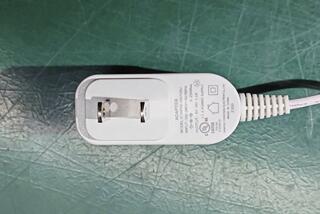Defective Medical Devices Targeted : Health: Early detection of life-threatening hazards in crib monitors and other hardware may be failing. Congress is exploring the problem.
- Share via
WASHINGTON — The attorney for a Texas couple who blame their son’s crib death on a defective respiratory monitor told a House subcommittee on Monday that the monitor’s manufacturer failed to inform federal authorities about at least 50 such deaths.
The infant deaths were cited at a subcommittee hearing as evidence of the failure of the Food and Drug Administration’s “early warning” system to detect potentially life-threatening problems with medical devices.
Manufacturers are required to inform the FDA when medical devices may have contributed to a death or a serious injury or when a malfunction could prove hazardous. But the company that manufactured the monitor in the Texas couple’s case initially notified the FDA of only one of 76 death and injury cases in its files, said Cage Wavell, who represents Michael and Cory Davis, a Corpus Christi couple.
“We were never told there could be any problems with the monitor,” said Michael Davis, 22, who testified in hushed tones about the March 17, 1987, death of his infant son. “The only thing we were told was that we couldn’t take our son home without the monitor.”
The monitor is used for infants susceptible to apnea, a sudden cessation of breathing. Davis said that it failed to sound an alarm when his son, whose lungs were not fully developed because he was born prematurely, stopped breathing.
The inspector general’s office of the Department of Health and Human Services is conducting a criminal investigation of the company--Aequitron--to determine whether it withheld required reports from the FDA.
Davis and his wife, Cory, provided the emotional focus of a packed hearing before the House Energy and Commerce subcommittee on health and the environment. They were preceded by Charles Bowsher, the comptroller general of the General Accounting Office, who discussed two GAO reports that were highly critical of the FDA’s oversight of medical devices, ranging from thermometers to kidney dialysis machines.
“It’s very clear here,” Bowsher said, “that . . . there’s very little testing going on, and when there are problems, they’re not reported.”
The GAO’s analysis of 1,635 medical device recalls between 1983 and 1988 determined that manufacturers had filed required reports of deaths, injuries or hazardous malfunctions in only 22% of the cases.
Bowsher said the GAO found that 33% of the medical device manufacturers said they were unaware of the reporting requirement. Manufacturers maintain that the reporting regulations are ambiguous and subject to differing interpretations by even well-meaning companies.
Rep. Henry A. Waxman (D-Los Angeles), subcommittee chairman, used the Davises’ description of their experience with Aequitron to illustrate what he and other critics maintain are the dramatic shortcomings of current regulation of the fast-growing $14-billion industry.
Representatives of the FDA, Aequitron and the Health Industry Manufacturers Assn. rebutted the GAO findings and witnesses’ testimony as misleading or inaccurate.
FDA spokeswoman Susan Cruzan said the agency encourages the medical device industry to initiate recalls when problems are detected and, “when the agency has information, it takes appropriate action promptly and aggressively.”
She said that the FDA understood that Aequitron had investigated each death associated with its monitors. In addition, she said the agency has begun its own inquiry to determine whether “the company’s conclusions were valid and to ascertain whether some of the nonreported deaths should have been reported under the law.”
In general, she advised: “Parents should be aware that no apnea monitor is foolproof.”
A spokesman for Aequitron, the largest maker of infant monitors, said the company had reported all required deaths or injuries to the FDA. The Plymouth, Minn., firm was aware of 115 deaths of infants for whom the monitor had been prescribed, including 24 in which the alarm allegedly failed, Chris Malacek said. The company reported eight cases to the FDA, he said.
“Over the course of eight years about 150,000 infants have been monitored,” Malacek said. During “all those monitoring cycles, it’s never been established that a defect or a malfunction in one of the monitors caused the death of a patient.”
Aequitron voluntarily recalled 5,000 of its Model 9200 monitors in June of 1987 after it determined that an alarm failed to sound at certain voltages. Malacek said the device used on the Davises’ son, a Model 8200, was subsequently tested by Aequitron and “found to be fully functional.”
The GAO found that 94% of new products that have come on the market in the past 13 years were not required to undergo rigorous tests to prove their safety and effectiveness because of a widely used loophole in a 1976 law. The law stated that manufacturers could avoid the testing process by declaring that the new product was “substantially equivalent” to devices already available. Aequitron has used this exemption for its infant monitors.
More to Read
Sign up for Essential California
The most important California stories and recommendations in your inbox every morning.
You may occasionally receive promotional content from the Los Angeles Times.










